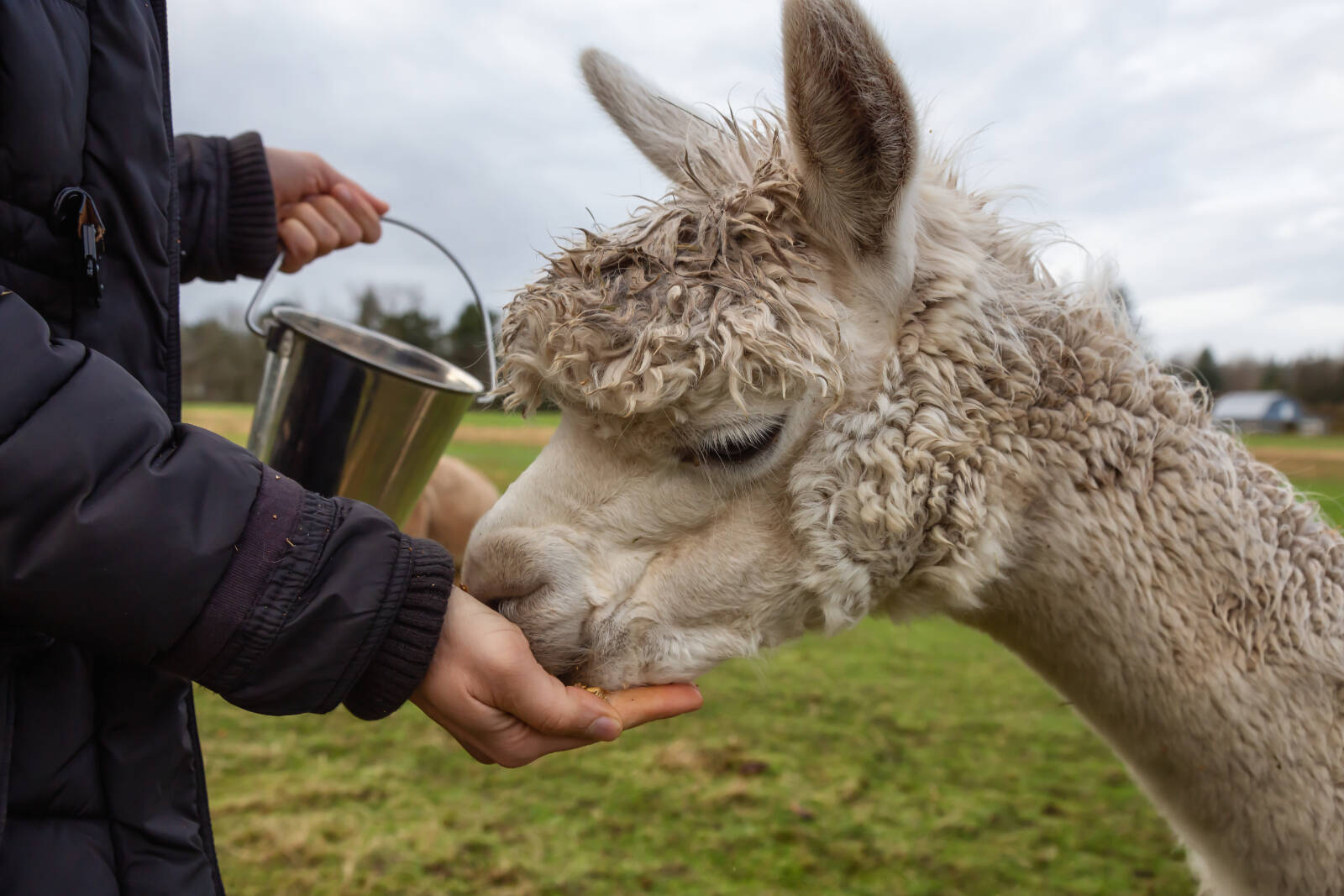Discovering and exploring the world is now more achievable than ever, thanks to a variety of budget-friendly travel opportunities.
From immersive house exchanges to volunteer opportunities, you can find significant cost savings, not to mention unique experiences that traditional travel options might not offer. Whether it’s living like a local through house sitting or embracing cultural experiences with work-exchange programs, these affordable strategies can open the door to exploring any region without breaking the bank.
1. House Exchange
A house exchange, also known as house swapping, is a travel arrangement where individuals or families agree to exchange their homes for a specified period, ranging anywhere between weeks to months.
This type of arrangement allows travellers to stay in a residence at their destination without paying for accommodation, while the owners of the exchanged homes also benefit from a place to stay in return.
Benefits of house swapping
- Cost savings: One of the most significant benefits of house exchanges is the potential for significant cost savings. People can enjoy free accommodation, eliminating the need to budget for hotels or rental properties.
- Home comforts: House exchanges provide the comforts of a fully furnished home, including a kitchen, living room and often additional amenities like a backyard, swimming pool, or other features that may not be available in traditional accommodations.
- Local experience: House exchanges offer a more authentic and local experience compared to staying in hotels or tourist areas. Participants have the opportunity to live in residential neighbourhoods, shop at local markets and engage with the community in a way that tourists often do not.
- Cultural immersion: Living in a local home facilitates cultural immersion. Participants can gain insights into the daily lives, customs and traditions of the destination, contributing to a richer travel experience.
- Environmental considerations: House exchanges can be more environmentally friendly compared to traditional accommodations, especially if participants use existing resources rather than staying in new construction or resource-intensive hotels.
- Extended Stays: House exchanges can be suitable for longer stays, allowing participants to settle into a destination and explore it more thoroughly than they might during a shorter visit.
You’ll a find a house swap on designated websites like Intervac Home Exchange, Home Exchange or Love Home Swap. These websites usually have a sign-up fee and include user reviews and profiles to learn a bit about who you’re exchanging your home with. You can also find house swaps through Facebook and Whatsapp groups.
2. Volunteer programs
Engaging in volunteer programs that involve travel is a fantastic way to contribute to meaningful projects while exploring different parts of the world.
Many organizations offer volunteer opportunities for individuals who are passionate about making a positive impact.
Benefits to volunteering for travel:
- Cultural immersion: Volunteers often have the opportunity to immerse themselves in the local culture, living and working alongside community members. This can lead to a deeper understanding of customs, traditions, and daily life.
- Contribution: Volunteers can make a positive impact by contributing their time and skills to projects that address real community needs. This sense of purpose and contribution can be highly rewarding.
- Education: Volunteer programs provide opportunities to develop and enhance a wide range of skills, including teamwork, problem-solving, communication, project management and cultural sensitivity.
- Global perspective: Engaging in volunteer work in different parts of the world exposes individuals to diverse perspectives and ways of life. This broader understanding contributes to a more global perspective.
- Community: Volunteers often build strong connections with local community members and fellow volunteers. These connections can lead to friendships, professional networks and a sense of belonging.
Probably the most well-known website is Rotary International. Global Vision International permits people to volunteer in conservation and animal care fields among others. Cross-Cultural Solutions helps volunteers connect with projects addressing critical issues around the world, from wildlife conservation to medical programs to working with children.
3. House Sitting
House sitting refers to the practice of someone staying in and taking care of a residence while the owner is away.
Usually, a house sitter cares for pets, plants or the house while the owner is away. This option is open to anyone – working professionals, families, retirees, couples, you name it.
Benefits to house sitting:
- Free accommodation: One of the most significant benefits for house sitters is the opportunity to stay in a home for free. This can be particularly attractive for individuals who enjoy traveling or want to experience living in different locations.
- Pet companionship: House sitters who love animals can enjoy the companionship of pets without the long-term commitment of ownership. This can be especially appealing for pet lovers who may not have pets of their own.
- Local experience: House sitting allows individuals to experience life in different neighbourhoods or cities. It’s a way to explore new places without the cost of accommodation, providing a more immersive travel experience.
- Flexible lifestyle: House sitters often have flexible schedules, allowing them to choose assignments that fit their availability. This flexibility can be appealing for freelancers, remote workers, or individuals with non-traditional work arrangements.
If you’re looking for a house-sitting opportunity, there are several online platforms and resources that connect homeowners with potential house sitters. These platforms allow you to create a profile, browse available house-sitting opportunities and connect with homeowners. Some popular options include MindmyHouse, HouseSittersCanada and even on Facebook groups.
4. Work Exchange
A work exchange, also known as a “work-for-accommodation” or “work-for-stay” arrangement, is a system where people provide their time and skills in exchange for accommodation and sometimes other benefits, like meals.
This type of arrangement is common in the travel and hospitality industries and is facilitated by several online platforms. Work exchanges can take various forms, and participants may include travellers, volunteers or individuals looking for temporary work opportunities.
Benefits to work exchange:
- Free or affordable accommodation: One of the primary benefits is the opportunity to receive free or heavily discounted accommodation. This significantly reduces the cost of travel and allows participants to stay in unique and often off-the-beaten-path locations.
- Cultural immersion: Work exchanges often emphasize cultural exchange, providing participants with a chance to immerse themselves in the local culture. Living and working alongside locals can lead to a deeper understanding of customs, traditions, and daily life.
- Education: Participants have the opportunity to acquire new skills or enhance existing ones, especially if the work involves specific tasks such as farming, gardening, language teaching, or other hands-on activities.
- Community: Participants often form relationships with hosts, fellow volunteers, and members of the local community, creating a network that extends beyond the duration of the exchange.
To find work opportunities, ranging from teaching to farm work, visit Workaway. To work specifically on organic farms, checkout WWOOF (World Wide Opportunities on Organic Farms). Also check-out HelpX and WorldPackers.
5. Couchers or couchsurfing
For the explorers at heart, couchsurfing can be a very affordable option. Couchsurfing and couchers are hospitality exchange and social networking platform that allows travellers (known as “surfers”) to connect with locals who are willing to offer free accommodation (a couch, spare room, or sometimes a bed) in their homes.
It’s not just about finding a place to stay but also about cultural exchange, meeting new people, and fostering a sense of community.
Benefits to couchsurfing
- Cost savings: One of the most significant benefits is the opportunity for free accommodation. Travellers can save money on lodging expenses, allowing them to allocate their budget to other aspects of their trip.
- Cultural immersion: Couchsurfing provides an immersive cultural experience by allowing travellers to stay with locals. It offers insights into the daily life, traditions, and customs of the host’s community, enhancing the overall travel experience.
- Local insights: Hosts often share valuable local knowledge, recommending off-the-beaten-path attractions, hidden gems, and the best places to eat. This insider information can significantly enhance a traveller’s itinerary.
- Community: Couchsurfing facilitates the formation of friendships and social connections. Travelers often bond with their hosts and may even meet other travellers or locals through Couchsurfing events or gatherings.
- Safety and comfort: Staying with a local host can provide a sense of safety and comfort, especially for solo travellers. Hosts may offer guidance on navigating the local area and provide a supportive environment.
Websites for couchsurfing include Couchsurfing, or the free version Couchers. Other websites include Be Welcome and specifically for the biking community is Warm Showers.
As with any travel opportunities, be sure to do your research about the organization you’re working with and potential hosts. Explore others’ experiences and check reviews for possible issues to consider.
Plan your adventures throughout the West Coast at westcoasttraveller.com and follow us on Facebook and Instagram @thewestcoasttraveller. And for the top West Coast Travel stories of the week delivered right to your inbox, sign up for our weekly Armchair Traveller newsletter!













 Alpaca Getaway: Take a farm-style retreat to Camano Island
Alpaca Getaway: Take a farm-style retreat to Camano Island